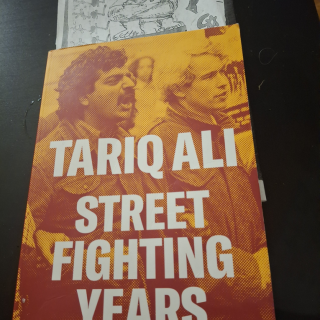The opening of American Sniper may remind Hemingway fans of a quote from For Whom the Bell Tolls: “You never kill anyone you want to kill in a war…”
Navy SEAL sniper Chris Kyle (Bradley Cooper) is peering through his scope from an Iraqi rooftop when he sees a woman and her young son approaching a U.S. convoy. As he watches, the woman produces what appears to be an explosive device and hands it to the boy. The marksman asks in vain whether anyone else can verify what he saw, even as the boy begins running toward the troops Kyle is assigned to protect.
Mercifully, director Clint Eastwood interrupts the tense moment with a lengthy flashback that explains just how Kyle ended up in this situation. Beginning with the Texan’s boyhood hunting trips with his father, it follows him into young adulthood, his early flirtation with the life of a cowboy and his eventual decision to join the military. It even details his courtship of and subsequent marriage to a goodhearted woman named Taya (Sienna Miller).
It’s only then that we return to the rooftop and watch as Kyle reluctantly does his duty, launching his career as the most lethal sniper in U.S. military history.
Eastwood was painfully out of his element with his recent film adaptation of Jersey Boys, but this mixture of patriotism, action and wartime angst is right up his cinematic alley. Though the film is based on the late Kyle’s autobiography, it’s likely that Eastwood and screenwriter Jason Hall took enough liberties to ramp up the excitement and emotional resonance.
Some of the developments do seem contrived, including a long campaign to take out an enemy sniper who boasts an equally deadly aim. And would a battle-seasoned SEAL really stop in the middle of a firefight to call home?
Still, the battle sequences are gripping. Eastwood and cinematographer Tom Stern depict the violence with enough realism to be believable and enough restraint to keep the focus on the characters.
But American Sniper doesn’t limit itself to the battlefront. During the stateside scenes that take place between and after Kyle’s multiple tours of duty, it also looks at war’s long-lasting effects on those who fight it.
This is important territory, but it’s also territory that’s been explored in the past. Screenwriter Hall sometimes has trouble finding fresh ways to dramatize the growing rift between the traumatized Kyle and his wife, forcing Miller’s Taya to spout lines such as “Even when you’re here, you’re not here.”
Miller’s convincing portrayal helps to make up for such clunky dialogue. But what really sells these scenes is Cooper’s subtle but expressive performance, which reveals the wounded psyche Kyle is trying to hide. It’s such an award-worthy effort that, frankly, it’s a shame it was ignored by last weekend’s Golden Globes ceremony.
The real-life Kyle was celebrated as a hero. Despite its occasional whiff of dramatic manipulation, American Sniper makes a compelling argument that he deserved the label.
Rating: 3½ stars (out of 5) American Sniper, rated R, opens Friday (Jan. 16) at theaters nationwide.



